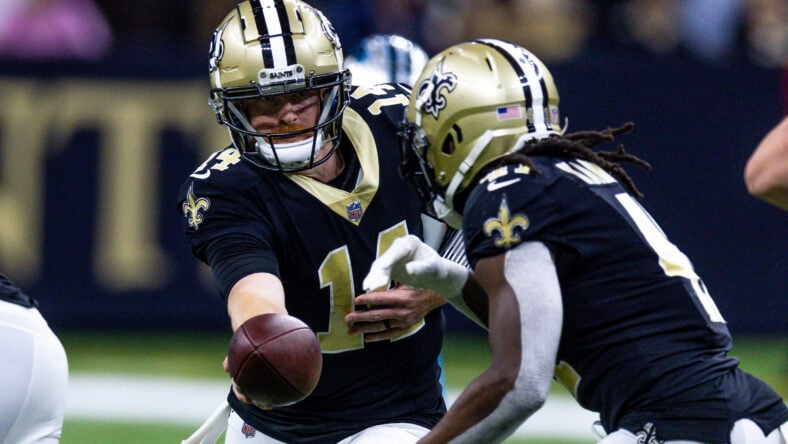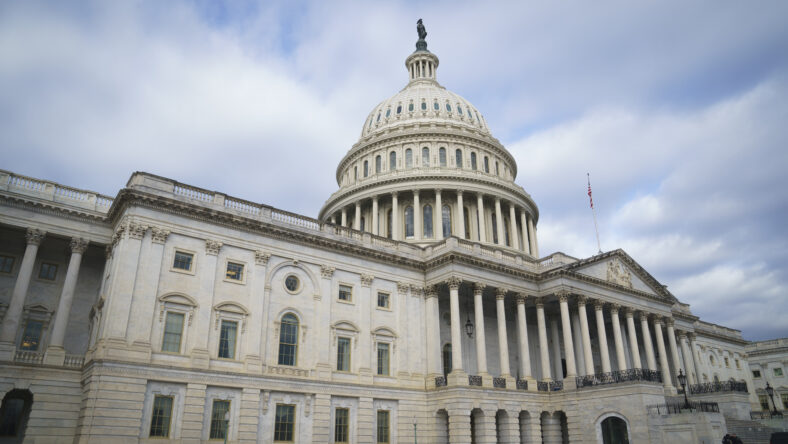Can Deshaun Watson Get a TRO & Play Week One? Here Are His Legal Options
Fake legal news happens to be a real thing. It’s when people who are not lawyers or sometimes even lawyers themselves, who want to create a fake buzz or don’t have a good understanding of the intricacies of a case, spread information that’s just not practical or realistic. This leads to the misuse of legal terms and a chaotic misunderstanding of the legal process.
A small group of Browns fans on social media seem to be convinced that Deshaun Watson can rush to federal court, if he doesn’t like the new suspension decision on appeal. Many are convinced he can just grab a “TRO” or temporary restraining order stopping the NFL from imposing its discipline. They think he can grab this type of “injunction” sort of like grabbing a Big Mac from McDonalds with a side of fries, then hop in a luxury sportscar and head over to the game, take the field in a superman cape and play week one all while leaving the NFL looking defeated on the Courthouse steps.
Not. So. Fast. Injunctions are one of the hardest legal remedies to get. Watson would have to prove several things, none of which even apply, and even then he may not get one. Injunctions are emergency remedies, where the Court rushes to stop something from happening because if it does, it could cause harm to someone that cannot be repaired.
What would Deshaun Watson’s irreparable harm be? He has none. In the past, courts have struck down arguments that players will be harmed by not being able to play for their teams.
Deshaun Watson and the NFLPA have accepted a six-game suspension, so you really think a Judge is gonna sit there and listen to the lawyers say that Watson would be harmed by a 10 game or 12 game or even 16 game suspension after they were totally fine with a six game one? Watson stands to lose more if court delays push this case into year two of his contract and he’s suspended when set to make 46 million dollars. So there is no financial harm, or even intangible harm here to him that would ever merit the grant of an injunction.
Next, Watson has to prove a “likelihood of success on the merits” of his case, to get an injunction. In other words, that he’s likely to win. Watson’s chances of winning a case trying to overturn an arbitration award that he and his team just praised as “full,” “fair”, thorough and “impartial,” is zero. Another no go. Plus a long line of cases (Brady, Elliott, etc.) set a precedent that would instruct a Judge to kick this guy’s case out of court. This just happened last year to Dallas Cowboys’ offensive lineman La’el Collins, who ran to get an injunction to stop his suspension from taking place and was quickly denied and sent on his way.
In a previous article, which you can read HERE, I discussed why a court will definitely not want to review an arbitration award now, right after the NFLPA and NFL just newly negotiated their process. I explained that challenges to arbitral awards require unfairness in the procedure. Not only has the NFLPA been more involved in this new procedure that it negotiated and agreed to (for example, helping choose the arbitrator) but it praised the process and vowed to stand by Judge Sue Robinson’s findings.
Everyone is wondering why the NFLPA can’t still go and challenge a decision by Roger Goodell’s new designee, if they don’t like the outcome. The more technically legal answer is that there are very limited grounds on which you can challenge an arbitration award. You can’t just run and make something up and lawyers can’t bring frivolous suits either.
Here are the legal grounds applicable in most states and at the federal level that are in place for challenging an arbitration:
1. The arbitral decision was procured through fraud/corruption
2. A corrupt arbitrator presided
3. The arbitrator was guilty of misconduct (by refusing to hear evidence for example)
4. The arbitrator exceeded his powers
As we saw in the Tom Brady and Ezekiel Elliott challenges, courts do not want to disturb arbitration awards or frankly, to be involved at all, because those processes were collectively bargained for and negotiated. Arbitration is a substitute for going to court and courts are thrilled that those cases are handled outside of the very clogged judicial system.
Nevertheless, Brady and Elliott made some initial headway with their challenges because they challenged the fairness of the underlying arbitration process in place under the outdated CBA. They argued, under the limited grounds above, that Roger Goodell exceeded his powers and was guilty of misconduct. They attacked the arbitrator and the process as unfair. For example, with the Elliott case, he could not cross-examine his accuser, certain evidence was not heard (like an opinion in Elliott’s favor from one of the investigators) and certain evidence was not allowed to be presented.
Same with Brady, who argued that he was denied the opportunity to cross-examine one of the two lead investigators of the investigative report: NFL General Counsel Jeff Pash. Brady also said he was denied access to investigative files, including witness interview notes.
The main gripe for both was the unfairness of Goodell being judge, jury and executioner and the rules of evidence and testimony in place at the time. To be even more clear, none of the above four grounds exist in the Watson story. The procedure has been entirely reformed and that reform has been acknowledged by the NFLPA in its most recent statement. The arbitrator was praised by the NFLPA for her impartiality, and she reviewed thousands of pages of documents. The NFLPA seemed pretty thrilled and content that all of the evidence was heard, exchanged and the arbitrator was legit. If anything, it was the accusers’ attorney, Tony Buzbee, crying foul on the new process. At a recent presser, Buzbee was the one complaining that his clients did not get to be a part of the process, were not all interviewed by the NFL and were never asked to testify at the arbitration.
If the NFLPA goes to a Judge and tries to complain about the new decision on appeal because the NFLPA disagrees with the outcome, that will also not work. The NFLPA agreed just recently to allow Goodell to assign a designee to hear an appeal. Unless, Goodell’s assignee, who has a great track record, does something egregious, there is just no grounds for challenging his decision. Not liking the outcome, or the length of a suspension or complaining that the personal conduct policy doesn’t put players on notice of how long they may be suspended, are not grounds for challenging an arbitral award. Brady tried the whole “I had no notice that I could be suspended this long for deflating balls” argument. It failed. However, what will Watson argue? “I didn’t know I could be suspended for allegedly sexually assaulting women?” The policy makes it pretty clear that there is a six game minimum suspension, per offense, for sexual assault involving physical force. Even if he argues there was no force, which many disagree with, it’s clear under the policy that any allegation of criminal conduct, is actionable, regardless of whether he is charged or convicted.
Again, courts don’t want to get involved. For that reason, grounds to challenge awards are very limited. Brady and Elliott both tried and it failed. That was with a CBA process that was fraught with unfairness. If it failed then, it will certainly fail now when the NFL and NFLPA have just given this brand new process their blessing.
Some wonder, well, will Watson be able to play week one, while the appeal is pending? Likely not. An appeal hearing must happen within ten days of the notice of appeal, which was two days ago. Therefore, by the 13th of August the Hearing will happen and that still gives more than two weeks for there to be a final decision. The CBA requires that the decision be issued expeditiously after the hearing so there should not be a long delay.
The bottom line is: Watson is out for the first six weeks and looking at possibly a longer suspension if the appellate guy doesn’t uphold the six. Keep in mind, Judge Sue Robinson found twelve violations of the personal conduct policy, which leaves plenty of room for a lengthening of the suspension. With findings from Robinson that the NFL proved that Watson more likely than not sexually assaulted four women, an indefinite, year-long suspension is certainly within the realm of reason.
The personal conduct policy places no limits on suspensions and gives broad discretion to how long the NFL can discipline someone for. It even says that second offenses of sexual assault with physical force warrant banishment from the league. The NFL can set its punishments at whatever it wants and a court has no interest in the substance of the punishment. It doesn’t care about the fairness of the outcome. When it comes to meddling in CBA arbitrations, Courts only care about the fairness of the process in getting to the decision, not the details of the decision itself. Watson will have to live with the final appeals decision, no matter the outcome. The rest is just fake legal news.
Categorized:Breaking News LOJ Exclusives NFL The Latest Top Stories



